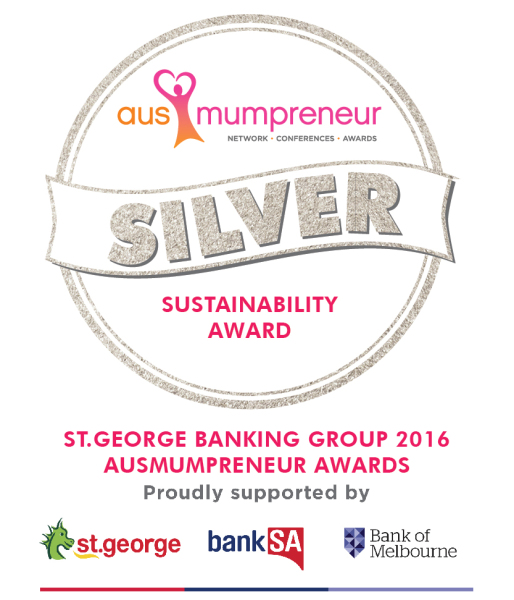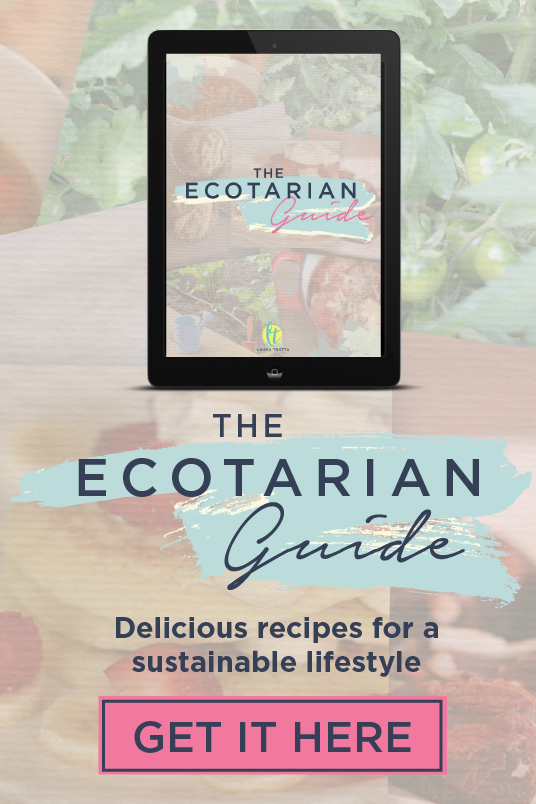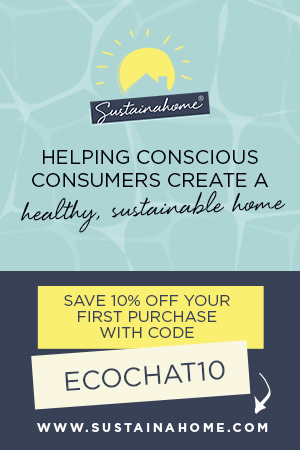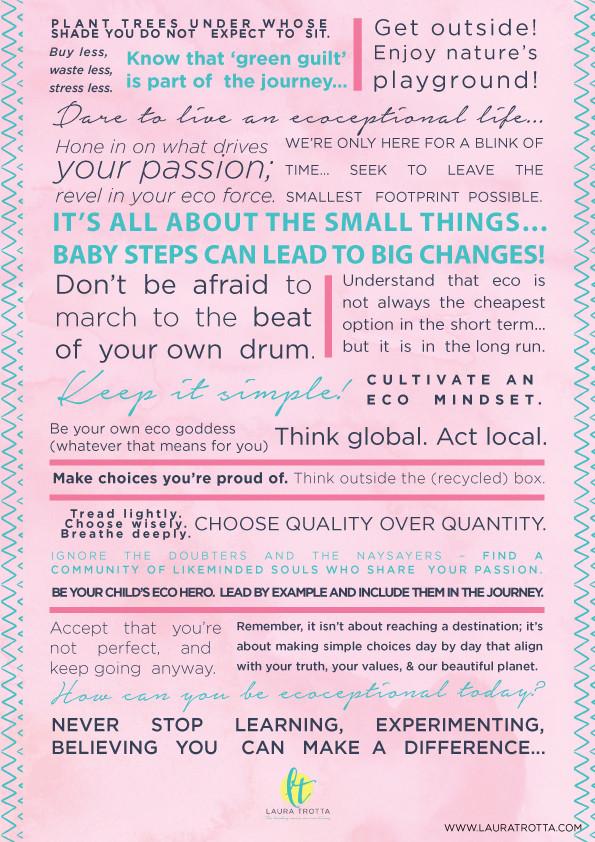Modern living and toxins often go hand in hand, but there’s plenty of ways we can reduce our exposure. The food we eat has a massive impact on our health, and naturally, what we feed our children directly impacts their current and future health.
This week I caught up with naturopath Jessica Donovan to discover how parents can best fuel their kids for a happy, vibrant, toxin-free life.
Jessica Donovan is a mama of 2, Naturopath and holistic health expert who helps families thrive. She is passionate about educating parents on nourishing their children with real food, helping to boost their health and heal naturally. Jessica combines her naturopathic knowledge with a realistic, empathetic, inspiring and down to earth approach to empower women to look after themselves and take charge of the well-being of their families.
Podcast: Play In New Window
Below is a summary of the podcast. To listen to the full recording click here.
From your perspective as a naturopath, can you share why it’s particularly important to clean up our kid’s environment and diet?
I remember when I was studying to be a naturopath a long time ago, sitting in one of my lectures and being really fascinated to learn that kids are not just mini adults. Like I did think they were just small versions of us which isn’t true at all.
Kids are particularly susceptible to toxins and chemicals in their food and environment because their gut, brain, and immune systems are still developing. Firstly, a child’s blood brain barrier is not fully intact until 2-3 years of age so that leaves the central nervous system highly susceptible to damage. In simplistic terms the blood brain barrier is kind of like a filter and it filters toxins and chemicals from the blood so that they don’t end up in the brain and in the nervous system. That barrier is still developing in babies and young children.
The next really big difference is that a child’s digestive lining is still somewhat leaky and their liver detox pathways are immature. This means that young children aren’t fully capable of handling toxins effectively and because of that they can experience increased levels of oxidation or oxidative stress as well as systemic inflammation even to just minimal toxin exposures. Inflammation and oxidative stress are some of the main contributors to some of the childhood health conditions that we are going to be talking about today as well. The lining of the gut that sort of separates the contents of our digestive system from the rest of the body, it is somewhat permeable but in kids the ‘holes’ are a little bit bigger that they are as adults. So some of the contents of the digestive system ‘leaks’ into the rest of the body more readily in kids.
Thirdly a child’s immune system is still developing in the first years of life. I like to talk about a child’s immune system, or everyone’s immune system, as a bit of a see-saw, so it’s really about establishing a good balance with that immune system. We often think of the immune system as the part of our body that protects us against microbes, bacteria, viruses, pathogens, but the other part of our immune system actually stops us reacting to things in our environment and in our foods that we shouldn’t react to. So things like foods, grasses, dusts, and things like that. When our immune system is still trying to achieve that balance, it’s more likely that kids are going to suffer with things like allergies and allergic conditions such as eczema, asthma, food intolerances, that sort of thing. So you can see in children that there are a lot of differences in the way that their bodies work compared to adults.
What are the current statistics on children’s health in our country and what future trends have been predicted?
I’ve got some really frightening stats from a great book called “Healing the New Childhood Epidemics”. It’s by Dr. Kenneth Bock. He is in the U.S. so these are U.S. stats but they’re pretty comparable to Australian stats as well.
In the last twenty years the incidence of quite a few illnesses in kids has grown hugely and the most astounding one is autism, which has increased 1500% in the last twenty years, which is just huge! Allergies have become 700% more common in the last twenty years. ADHD is 400% more common, so five times as many kids now are being diagnosed with ADHD than there were twenty years ago. Asthma has increased by about 300% in the last twenty years and eczema has increased by about 500% in the last forty years. So there’s huge growths in these childhood conditions.
One of the Australian stats is that 25% of children in Australia are now classified as overweight or obese. Chronic health conditions in kids are on the rise and it’s not looking like they’re slowing down. Some of these stats can be put down to better diagnostic testing, that counts for some of them, but still it’s a huge rise.
What do you believe are the main contributors to the epidemic in these childhood conditions?
It’s important to note that all of these conditions are multifactorial meaning that there is not a singular cause that causes autism or there’s not a known cause for allergies or even asthma or eczema. So there’s lots of different contributing factors that contribute to these conditions.
There’s not really a clear answer but what is clear is that the epidemic in these childhood health conditions has coincided with two things and one of them is the decline of proper nutrition for kids. Now more than ever before we’ve got access to plenty of food in the Western world. We’re not going to starve, we’ve got more than enough choice with the foods that we’re eating and giving our kids. But our kids are getting less nutrition within their food even though they’re eating more food than they ever have before. They’re eating food that is more nutrient depleted so they’re not getting the basic nutrients that they need. They’re not getting enough good fats, they’re not getting enough of the vitamins and the minerals and the phytochemicals that they need from food.
The second one is increased toxins in the environment. This is your area Laura, as you know it comes from the foods that the kids are eating, the air that the kids are breathing, the industrial toxins that are in our environment, and the home environments that kids are living in.
So there are many contributing factors; the medications that kids are on, the lotions and potions that we start bathing our kids in and rubbing on our babies as soon as they’re born. This toxin exposure begins in utero so a pregnant woman is passing these chemicals and toxins through to the baby before they’re even born. So they’re the two things that are clear that have coincided with rise of these childhood conditions.
I guess as parents we’re the ones that are responsible for changing the foods that are kids are eating and there are simple ways that we can do this, we don’t have to become obsessive about it. Also the environments, we do have some control over the environments of which our kids are living in, so it’s really important to concentrate on these two things if we’re looking at improving our kids’ health.
What are some of the typical conditions in children you see presenting in your naturopath clinic and what kind of results do you get with the kids you work with?
I was seeing lots of really desperate families that are really unhappy with the results that they were getting from seeing doctors and specialists, and taking medications that either weren’t working or were having pretty harsh side effects on their kids.
In Clinic, as a naturopath I see loads of kids with eczema. That’s probably my number one condition that I see and I think the reason for that is because there aren’t really a lot of answers in terms of what the doctor’s solutions to eczema is. Harsh cortisone creams, antibiotics when it gets infected, and that’s really the only answers that they have which is not good enough as far as I am concerned.
Also asthma, and I see a lot of kids who are constantly sick with colds, ear infections, chest infections, coughs, and again they take the kids to the doctor and it’s either rest up or give them a course of antibiotics. Some of the kids that I see are on loads of antibiotics. I remember seeing a little 2-year-old girl who was constantly sick. She was in childcare but she was just not recovering from one illness and getting another illness on top of it and she had been on dozens of courses of antibiotics in her very short little life. We got her on some nutritional supplementation, we worked on her gut health, we worked on the strength of her immunity obviously and within a few weeks she was much better and she was able to get off that antibiotic cycle.
I also see lots of kids with digestive issues, tummy aches, irregular bowels, toileting issues, food intolerances, behavioural and neurological issues, anxiety, low moods and all of the conditions that we mentioned before as well. I get really good results with these kids.
There’s another one of my clients that has cystic fibrosis. For people who don’t know what that is, it’s a genetic condition that basically means you produce more mucus in the lungs and digestive system. He was on a long list of medications, he was always getting sick, and he was constantly on antibiotics. Within the first few months of seeing me he was like a different kid. He wasn’t growing either which is something that can happen with cystic fibrosis so his growth rate increased and his lung function was better than ever before. We were able to reduce his medications. His mum was really on board with what we were doing so she made some big differences to his diet, and because she noticed such an amazing difference in him it motivated her to keep going and he was really motivated to keep going too.
So lots of different sorts of kids that I’ve seen in Clinic over the years but I’ve always gotten really good results with kids. Which is why I’m so passionate about getting the message out there that it is possible to overcome a lot of these health conditions with natural means; diet, lifestyle, herbal medicines, and nutritional medicines as well.
Some kids are just more robust than others and seem to thrive no matter what, but there’s other kids that are more susceptible to infections or to developing some of these chronic kids’ conditions.
Also the toll it takes on the family when kids are always sick, you need to take time off work and they need to take time off school, and there’s the doctor’s appointments and specialist appointments. So you’ve got a sick kid and you’ve got a really overwhelmed, stressed out mum and dad so it can feel like it’s all too hard to make changes. Which is why I’m really big on small actionable steps that you can take, simple things that can really make a big difference to your kid’s health and your family’s health.
Can you give some clear action steps parents can take away to improve their child’s health?
One of the big things is to not feel like you have to do it all. Making small changes adds up over time to making a big difference in your kid’s health.
The number one thing I would say to start with is to focus on adding some nutritious whole foods into the foods that they already love, into the foods that they’re already eating. You could add some almonds and some pumpkin seeds and some chia seeds into the cereal that they’re already having for breakfast. Or you could make a homemade granola and sprinkle a bit of that over the top of what they’re already eating, and maybe some berries to add in some antioxidants.
Depending on your child, some kids you need to be really slow with the changes, other kids are more open to taking on some bigger changes. You know your own child but focus on getting some good wholefoods into their diet and adding those to the foods that they are already having. If they’re having toast maybe you could simply put a poached egg on top or scrambled eggs on top of their toast, that makes a big difference. Eggs are full of protein, full of nutrition, help keep their blood sugar levels stable, will help them concentrate and learn at school much better than a piece of toast will. That’s where I would start.
Fresh, raw foods are great to add in as well so just adding some salad veggies in to their lunchbox. If they’re having the standard sandwich, muesli bar, piece of fruit, you could maybe give them half the sandwich but then add a heap of veggie sticks to their lunchbox as well. Some red capsicum, some carrot, some celery, some cucumber, just start with the things that you know they’re more likely to eat. So add the raw veggies in and perhaps have a smoothie ready for them when they get home from school. They might like a banana milky smoothie but maybe you can add in some goji berries or some blueberries or even just a tiny little bit of spinach; a leaf or two to start with. Start adding nutrition in to the food they’re already eating.
The other thing I would say is get them involved in food somehow so whether that is helping you to cook, helping you to prepare, or helping you to chop stuff up. Helping you to grow some food, getting them to grow some green leafy plants or some herbs or something that’s really simple and they get a quick result from. Helping you with shopping; ask them to choose three or four veggies for the week when you go to the market so that when you serve that food up you can say “look remember you chose that we were going to have this dinner one night this week!” And if they’re a bit older maybe they can help you choose some recipes, you can go online with them and pick some veggie recipes or raw bliss ball recipes that they like the look of and you can make them together. If they’ve been involved in the food journey somehow it really makes them more likely to want to try the food that comes from that.
You might get them to grow something and they may not eat it but don’t think “oh that was a waste of time” because it’s still instilling in them where food comes from. If you’re just going straight to the supermarket and buying all your food, they don’t think about where it’s come from. So shopping at markets, I’m a big fan of that rather than the supermarket, or if you don’t have a good farmer’s market nearby go into the butcher to buy your meat, and the fishmonger to buy your fish, and the fruit and veg shop to buy your fruit and veg. Trying to do that generally means you’re going to eat less processed foods.
How can we best fuel our kids with good food without becoming overly obsessive about it?
I think this is a great question because like I said I’m all for balance. I think the important thing to think about is that it begins at home. If you can stock your kitchen at home with lots of fresh wholefoods so that your kids have healthy foods to choose from when they’re hungry, when they’re going for a snack, when they’re putting together a meal if they’re a bit older, then that’s really a great start.
Slowly reducing the amount of processed stuff that you’re buying and increasing the amount of wholefoods that you’re buying is really important. At first if they’re used to being able to open the pantry and grab a packet of something or a biscuit from the barrel or whatever and they don’t have those options anymore there might be a few complaints. But after a while they learn to grab a carrot or one of your raw bliss balls that you’ve whipped up in 15-20 minutes. Stocking a healthy kitchen is definitely a real priority.
Also being a healthy role model yourself. That’s a huge one when it comes to kids. If you’re making a smoothie, make one for everyone and let your kids see you drink it as well.
Building up a repertoire of healthy meals and homemade snacks that you know your kids like is important as well. Because your kids aren’t going to like every batch of bliss balls that you make or they’re not going to like every smoothie that you like. When you make something and they actually like it, take a note of that and make sure you remember the ingredients that went into that meal or that snack so that you know that you’ve got a repertoire of healthy snacks and meals that they do like.
If you are going to parties and get-togethers maybe you can take along a plate of something that you know your kids will like. If we go to a party I always make sure they’re fed before we go somewhere so that they’re not starving, so at least they’ve got some good nutrition in first, but my kids will be into the lollies and the chocolates and whatever other junk there is just as much as the other kids. So don’t feel like you’ve failed if that’s happening I think it’s just that they don’t want to feel like they’re missing out.
Don’t stress too much when you’re out, depending on your kid’s health. There are some certain situations where they do need to completely give up sugar or gluten or dairy because of the health condition that they have and the benefits that they’ll get from that, but for most kids that have a good level of health the odd sugary treat won’t devastate their health. It’s what you do the majority of the time that really counts.
If their gut and immune health is being built up, which are things that I help parents work on, then their bodies will be more well-equipped to handle those occasional social blow-outs. Also their palettes change so they won’t be as drawn to the really sugary things or they might be able to tolerate less of it. I think that some kids just naturally have that ability to be able to listen to their bodies better than others.
I think as a parent you’ve got to set a limit but I think depriving them completely just leads to them wanting it more and more. It’s that balance I think so doing the right thing at home, packing healthy lunchboxes for them, and when you go out relaxing a little bit and hopefully they make better decisions over the years.
There comes a time when they’re going to be able to make their own food choices when they get that bit older and so I think that what you do in those early years definitely sets them up. Their health is going to be better, and their gut health and their immune strength is going to be better. Also they’re going to be less likely I think to binge on those sorts of things. If they feel deprived I think that can sort of backlash a little bit later on.
If we instil that good food message in them early by being good role models in that area, then even if they do go ‘off track’ a bit in their late teens/early twenties they will come back. So it’s really important to do and I talk to my kids a lot about what they’ve eaten and how that is potentially affecting the way that they are feeling. This helps them be able to connect the way that their bodies feeling with the food that they’re eating. That can be done positively as well, that they feel good because of that nutritious breakfast that they had or that big plate of veggies that they ate or that sort of thing.
Where can listeners find out more about you and where can they best be supported as they to learn more about how to fuel their kids with good food?
From 12th July doors will also be open for my Natural Super Kids online program. This is only run once a year so be sure not to miss out!
My online home is my Energetic Mama blog where I share lots of information about kids’ health and also mums’ health.
Podcast: Play in new window | Download
- Sustainable Home Design- factors to consider to maximise sustainability - July 28, 2022
- Advantage and Disadvantages of Tiny Houses - May 31, 2022
- How School Strike 4 Climate is Empowering Youth to Fight for Their Future - May 1, 2022

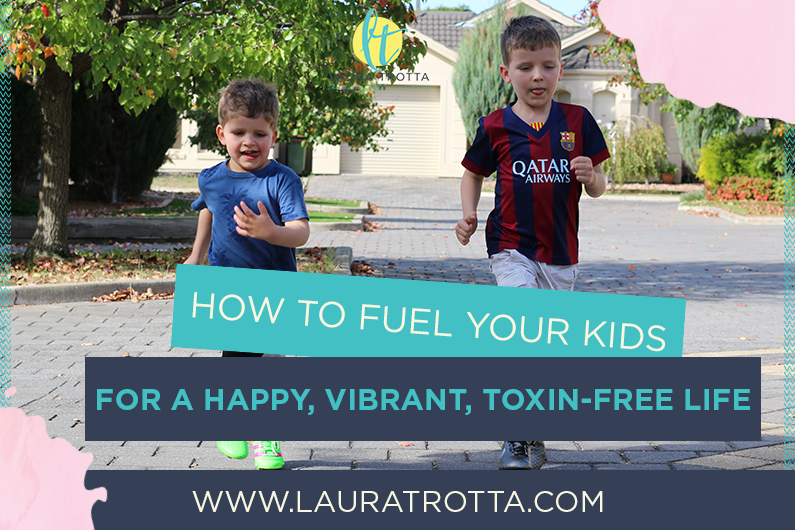
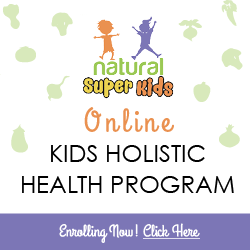
 Laura Trotta is one of Australia’s leading home sustainability experts. She has a Bachelor of Environmental Engineering, a Masters of Science (in Environmental Chemistry) and spent 11 years working as an environmental professional before creating her first online eco business, Sustainababy, in 2009. She has won numerous regional and national awards for her fresh and inspiring take on living an ‘ecoceptional’ life (including most recently winning the Brand South Australia Flinders University Education Award (2015) for the north-west region in SA and silver in the Eco-friendly category of the 2015 Ausmumpreneur Awards). With a regular segment on ABC Radio and with her work featured in publications like Nurture Parenting and My Child Magazine, Laura is an eco thought leader who’s not afraid to challenge the status quo. A passionate believer in addressing the small things to achieve big change, and protecting the planet in practical ways, Laura lives with her husband and two sons in outback South Australia.
Laura Trotta is one of Australia’s leading home sustainability experts. She has a Bachelor of Environmental Engineering, a Masters of Science (in Environmental Chemistry) and spent 11 years working as an environmental professional before creating her first online eco business, Sustainababy, in 2009. She has won numerous regional and national awards for her fresh and inspiring take on living an ‘ecoceptional’ life (including most recently winning the Brand South Australia Flinders University Education Award (2015) for the north-west region in SA and silver in the Eco-friendly category of the 2015 Ausmumpreneur Awards). With a regular segment on ABC Radio and with her work featured in publications like Nurture Parenting and My Child Magazine, Laura is an eco thought leader who’s not afraid to challenge the status quo. A passionate believer in addressing the small things to achieve big change, and protecting the planet in practical ways, Laura lives with her husband and two sons in outback South Australia. 